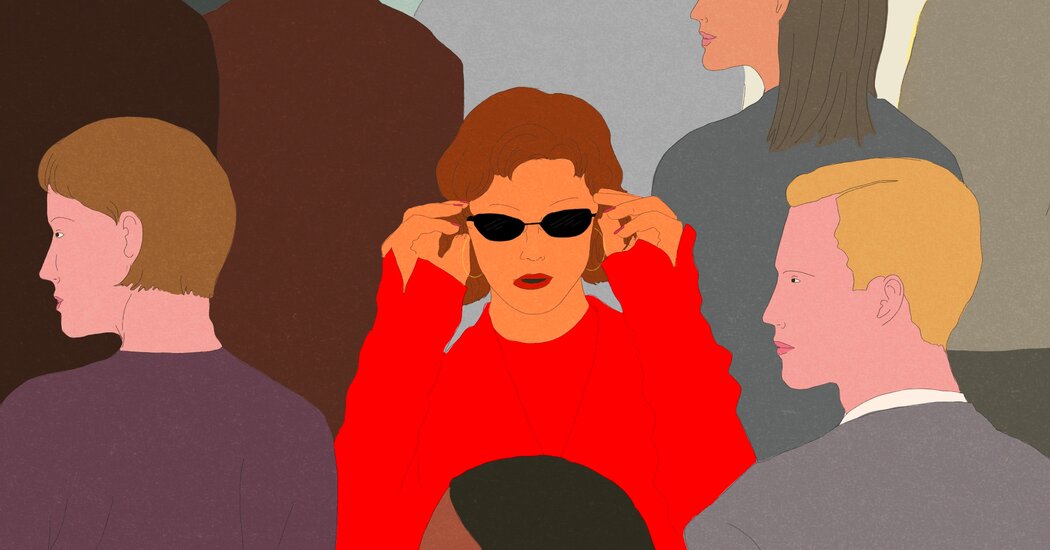Is there a secret sauce that helps explain why people as different as David Bowie, Samuel L. Jackson and Charli XCX all seem so self-assured and, well, cool?
A new study suggests that there are six specific traits that these people tend to have in common: Cool people are largely perceived to be extroverted, hedonistic, powerful, adventurous, open and autonomous.
The study, which was published on Monday in the Journal of Experimental Psychology: General, surveyed nearly 6,000 participants from 12 countries around the world. Their beliefs about what’s “cool” were similar regardless of where the study participants lived, and despite differences in age, income level, education or gender.
“What blew my mind was the fact that it was pretty much the same result everywhere,” said Caleb Warren, one of the authors of the study and a professor at the Eller College of Management at the University of Arizona who has researched consumer psychology for two decades.
In the study, each participant had to recognize the word “cool” in English, without translation, suggesting that they were already familiar with — or maybe even idolized — notions of coolness from wealthy Western countries like the United States.
In that sense, the study offers a window into the spread of cultural beliefs from one group of people to another, said Joseph Henrich, an anthropologist and a professor of human evolutionary biology at Harvard who was not involved in the study.
“Globally, American success has led to the diffusion of music styles and an immense amount of cultural content, including, apparently, the concept of cool,” Dr. Henrich said.
Coolness is not a widely studied subject. Past research has found that coolness is usually considered something positive: People who are cool are also friendly, competent, trendy and attractive. But Dr. Warren and his colleagues wanted to know what makes a person distinctly “cool” rather than just “good.”
So the researchers asked the participants to think of specific people: one who is cool, one who is not cool, one who is good and one who is not good. Then they asked the participants to evaluate each person by answering questionnaires that collectively measured 15 different attributes.
While the cool and good people had overlapping traits, compared with their cool counterparts, good people were perceived as more conforming, traditional, secure, warm, agreeable, universalistic (the extent to which a person sees everyone and everything as being equal or equally worthy of care and respect), conscientious and calm.
Those who were perceived as capable were equally considered cool and good.
One limitation of the study was that anyone who did not know the word “cool” was automatically filtered out. As a result, the data cannot determine how frequently the word is used in different countries or whether in certain cultures coolness will lead to a higher social status relative to others. In addition, while the study included participants with a wide range of ages, the population skewed young: The average age from each region was generally 30 or younger.
Other studies have shown that there are important cultural differences that can affect the traits that we value.
“Factors like aggression make us have higher status in some Western cultures and simultaneously give us less status in the East,” said Mitch Prinstein, the chief of psychology at the American Psychological Association, who has written two books about popularity, which can be a consequence of coolness.
Research on coolness suggests that the desire to be cool is particularly strong during adolescence, and it influences not only what people buy or whom they admire but also how they talk and what they do for fun.
But what’s considered cool by the broader culture might not be the same as what you personally believe is cool. This is why Dr. Warren and his colleagues asked each participant to think about the people they considered cool vs. good. Interestingly, across the board, the types of traits that are typically associated with kindness or helpfulness were more often perceived as good instead of cool.
So is coolness a trait that’s worth pursuing?
To that end, Dr. Warren, said, “I have serious doubts.”
Coolness that involves risk-taking and being socially precocious during adolescence may offer popularity during youth, but one study published in 2014 found that many teenagers who behaved in this way would later struggle in their 20s, developing problems with alcohol, drugs and relationships. “They are doing more extreme things to try to act cool,” one of the researchers told The New York Times.
For the popular kids in school, “status is dominance, visibility, attention,” Dr. Prinstein said. But, he added, it is how well-liked you are that contributes to long-term success.
“Even the most uncool kid will probably fare well if they have at least one close friend,” he added.
Perhaps coolness — particularly the dismissive “too cool for school” variety — isn’t all it’s cracked up to be.
Christina Caron is a Times reporter covering mental health.
The post What Makes Someone Cool? A New Study Offers Clues. appeared first on New York Times.




